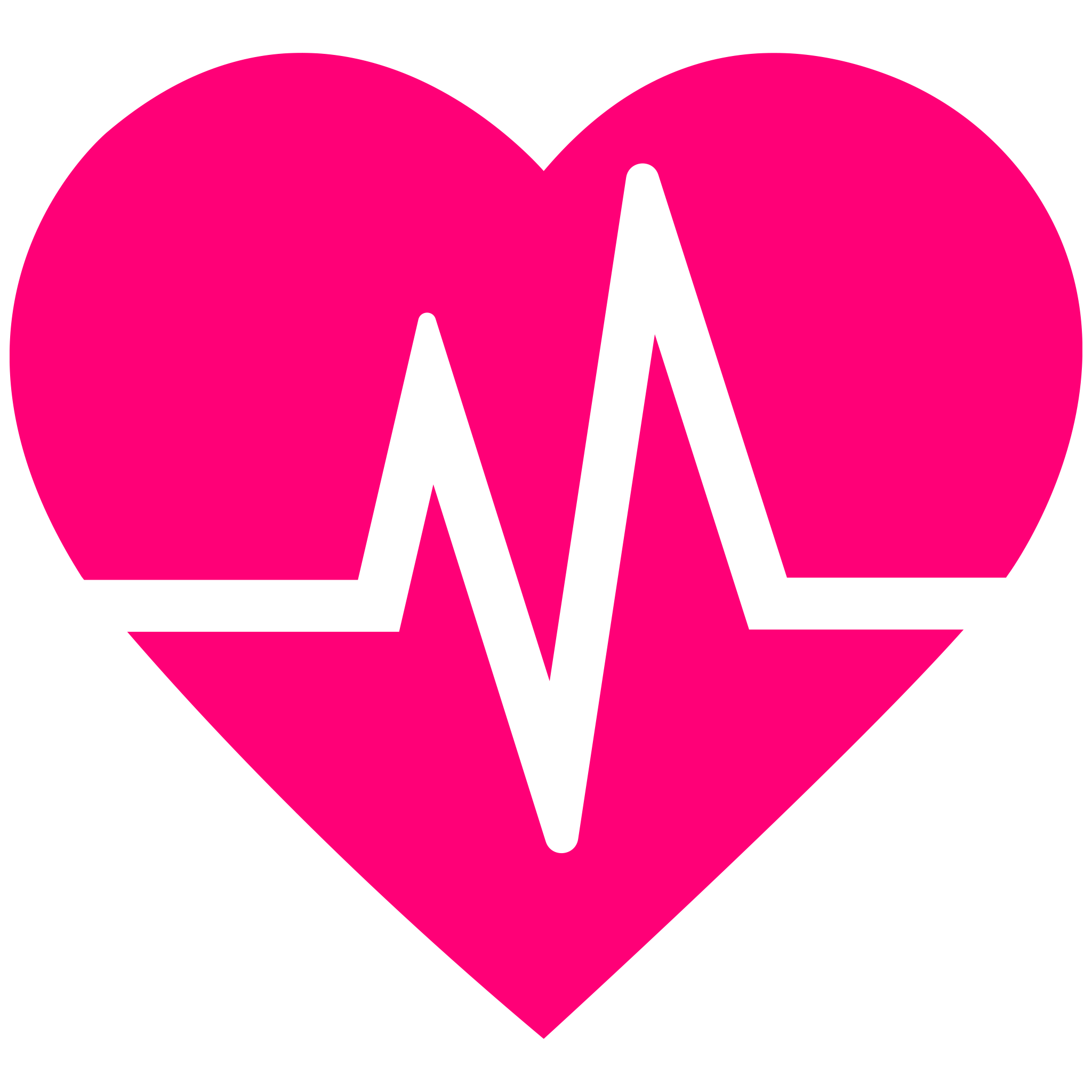Ever wondered why some people swear by counting calories? Imagine you’re at a buffet. You can eat anything, but the catch is you need to know how much you’re eating. That’s calorie counting in a nutshell. It’s not just about cutting back; it’s about understanding your calorie intake. By knowing the number of calories you consume, you can make smarter choices. This method isn’t a calorie fallacy; it’s an effective weight-loss strategy. The foods you eat play a big role. Some foods help you lose weight while others don’t. Clinic Health studies show that zigzag calorie or calorie cycling can boost results. Curious yet? Let's dive in!
Key Takeaways
Counting calories helps you understand your calorie intake and make smarter food choices.
Different foods impact your body differently; some help you lose weight while others don't.
Zigzag calorie cycling can boost your weight loss results.
Use apps to simplify the process of counting calories.
Measure and weigh your food portions accurately for effective results.
Unveiling the Mystery of Calories: What Are They?
Everyone talks about calories, but what are they, really? To put it simply, a calorie is a unit of energy. When we eat, we consume calories, and our body uses them to fuel various activities. Weight loss by calorie counting is an effective method to shed extra pounds.
By counting calories, you can easily track your calorie intake. This involves noting the number of calories in the foods you eat. Foods like fruits, vegetables, and lean proteins are low in calories and high in nutrients, making them ideal for those looking to lose weight.
The calorie fallacy suggests that not all calories are created equal. For instance, 100 calories from broccoli is more better than 100 calories from candy. An effective weight-loss strategy often includes calorie cycling, also known as zigzag calorie counting. This involves varying your daily calorie intake to keep your metabolism active.
To make this easier, the clinic health letter from clinic press offers tips and guidance. Remember, you don't have to navigate this journey alone. Chatting with a trusted person can provide the support you need.
The Importance of Calories Counting in Weight Loss
Counting calories isn't just about math; it's about making better choices. Imagine you’re a person who loves snacks. By tracking your calorie intake, you can still enjoy your favorite foods without going overboard.
Ever tried zigzag calorie diets, like calorie cycling? It's like giving your body a little surprise party. One day you eat more, the next you eat less. This can keep your metabolism guessing and help you lose weight.
For clinic press fans, the clinic health letter says that understanding the number of calories in your foods can make a big difference. Want to lose some pounds? Start by knowing how many calories you eat.
Imagine your body as a machine. Feed it the right fuel, and it runs smoothly. Eat too much junk, and it clunks along. You don't have to give up your favorite foods entirely. Just count them.
If you’re trying to lose, calorie counting might be your new best friend.
How Many Calories Does a Person Really Need?
Finding the right number of calories you need can seem like solving a puzzle. But don't worry, it's simpler than it looks! Every person is different. Some people need more energy, while others need less. Your body's engine runs on food, so the type and amount of food you eat matters.
Eating the right foods can help you lose weight. To do this, you need to understand your calorie intake. Think of your body as a car. If you put in the right fuel, it runs smoothly. If not, it sputters.
Weight loss by calorie counting is like budgeting money. Spend too much, and you gain weight; spend less, and you lose it. Some folks use calorie cycling, or zigzag calorie plans, to keep their metabolism guessing. This means eating more some days and less on others.
Clinic health experts often suggest varying your foods to keep things interesting. So, keep track of what you eat, and watch those pounds melt away!
Discovering the Impact of Different Kind of Calories on Your Body
If you're aiming to lose weight, understanding the impact of various foods on your body is crucial. Not all calories are created equal. Some foods are more filling and boost your metabolism, while others can make you crave more.
Take a person who eats 100 calories of candy versus someone who consumes 100 calories of almonds. Which one stays full longer? The almonds win, hands down! The fiber and protein in almonds help keep you satisfied.
Calorie counting can be a helpful tool, but it’s essential to focus on the quality of calories consumed. A high-calorie intake from nutrient-rich foods can be more better than low-calorie junk food.
Clinic press articles often highlight the importance of a balanced diet. The clinic health letter emphasizes the significance of choosing whole foods over processed options.
Everyone's body needs a specific number of calories to function well. By understanding this, you can make smarter choices and achieve your weight goals more effectively. Remember, the journey to a healthier you starts with small, conscious choices.
Zigzag Calorie Cycling: A New Approach to Weight Loss
Who knew that counting the number of calories could be fun? It’s like a game where the prize is a healthier you! Imagine tracking what you eat, not to limit yourself, but to empower your choices.
Different foods have different calorie values. By being aware of these, you can make smarter decisions. A slice of cake might be tempting, but a bowl of fruit will make your body happier in the long run!
People often think they need to lose weight quickly. However, slow and steady wins the race. Ever wondered why some diets fail? It's because they’re too restrictive. A balanced approach, with room for treats, works better.
Feeling overwhelmed? Break it down into small steps. Start by swapping sugary drinks for water. Or choose vegetables over chips. These tiny changes can lead to significant results over time.
Understanding the basics helps. Knowing the number of calories you need daily can guide your choices.
Track your meals
Choose healthier snacks
Drink more water
Avoid sugary drinks
Eat plenty of vegetables
Allow occasional treats
Stay consistent
Decoding the Calorie Content in Common Foods

Ever felt puzzled about the number of calories in the foods you eat daily? Understanding how to count calories can be the secret to weight loss. Knowing the calorie content in common foods helps you make better choices and fuels your journey to a healthier body.
Imagine being able to enjoy your favorite foods while still working towards your goals. Sounds like a dream, right? It's more doable than you think. By tracking the calorie content, you can enjoy a slice of pizza or a piece of chocolate without guilt.
Let’s look at some daily foods and their calorie content:
Food Item | Serving Size | Calories | Remarks |
|---|---|---|---|
Apple | 1 medium | 95 | Great for snacking |
Chicken Breast | 3 ounces | 165 | Lean protein source |
Bread | 1 slice | 79 | Good for sandwiches |
Banana | 1 medium | 105 | Perfect for breakfast |
Pizza | 1 slice | 285 | Treat yourself |
Remember, knowing the calorie content lets you enjoy your foods while working towards your goals.
5 Effective Apps to Simplify Your Calorie Counting Journey

Tracking your food can be a game-changer. It helps you become more aware of what you're putting into your body. But let's be honest, it can be quite a hassle to count calories manually, right? That's where these apps come into play.
Ever tried MyFitnessPal? It's like having a personal dietitian in your pocket! You just input the foods you eat, and it does the rest. Lifesum is another great app, offering more than just calorie tracking; it also provides personalized meal plans.
Love a bit of a challenge? Lose It! sets daily food goals to help you stay on track. For those who need a bit of motivation, SparkPeople offers a supportive community. Cronometer is perfect for those who crave detailed nutritional information.
App Name | Features | Best For | Price |
|---|---|---|---|
MyFitnessPal | Easy tracking | General use | Free/Premium |
Lifesum | Meal plans | Personalized plans | Free/Premium |
Lose It! | Daily goals | Gamification fans | Free/Premium |
SparkPeople | Community support | Social users | Free/Premium |
Cronometer | Detailed nutrition | Data lovers | Free/Premium |
How to Accurately Measure and Weigh Your Food Portions
Feeling overwhelmed by the sheer amount of food choices? Fear not! Establishing a routine to measure and weigh your food can pave the path to success. Start by using a digital scale to weigh your foods—precision is key!
For instance, weighing an apple provides a clear picture of the number of calories you're consuming. This effort helps in understanding portion sizes and in making healthier choices.
Tracking your foods can be an eye-opener. Those chips you love? Weigh them before munching. It's easier to stick to your goals when you know exactly what's on your plate.
Ever tried measuring your morning oatmeal? A cup might seem tiny, but it packs a punch in nutrients.
When you count calories, every gram counts. Keep a log and see how your body responds. This habit can lead to real change.
With these steps, the journey to weight loss by calorie counting becomes less daunting and more empowering.
Replacing High-Calorie Foods with Lower Calorie Alternatives: A Win-Win Approach
Switching out high-calorie foods for lower-calorie alternatives is like swapping a heavyweight for a featherweight in a boxing match. The benefits to weight loss by calorie counting are undeniable. Imagine replacing a hefty burger with a lean turkey sandwich or choosing popcorn over chips. These simple swaps can help cut the number of calories you consume without sacrificing taste.
Why not make small changes in your daily diet? It’s like trading in a gas-guzzler for an eco-friendly car—both your body and the planet win. Think about how your body will feel lighter, more energetic, and healthier.
For those of us juggling busy schedules, finding sustainable ways to manage our diet can be challenging. I’ve found that making these small adjustments can make a significant impact on overall well-being. If you’re curious about more sustainable weight loss tips, I’ve shared my personal strategies in this article on weight loss tips for busy women. It’s all about making choices that are doable and effective.
Conclusion
Counting calories can feel like a maze, but it's one of the most effective ways to understand and control your weight. By knowing what's on your plate and how it affects your body, you're setting yourself up for success. It's not just about eating less; it's about making smarter choices that fit your lifestyle.
Remember, every small change adds up. Swapping a soda for water or choosing a salad over fries makes a big difference over time. Keep it simple and stay consistent. Your journey to weight loss is just that—a journey. Enjoy the process, celebrate your wins, and don’t be too hard on yourself. You've got this!
FAQ
What are calories and why do they matter?
Calories are units of energy. Think of them as fuel for your body. When you eat, you’re filling up your tank. Your body uses this fuel to perform all sorts of tasks, from breathing to running marathons. Eat too many calories, and the excess gets stored as fat. Not eating enough? Your body won't have the energy it needs to keep you going.
How many calories should I eat to lose weight?
It varies for everyone. On average, women need about 2,000 calories a day, while men need around 2,500. But if you want to lose weight, you'll need to eat less than your body burns. A common strategy is to cut about 500 calories a day to lose around one pound per week. But always check with a health professional before making big changes.
Does it matter what kind of calories I eat?
Absolutely! Not all calories are created equal. Eating 100 calories of candy isn’t the same as eating 100 calories of vegetables. Junk food might give you a quick energy burst but leaves you hungry and tired soon after. Nutrient-dense foods like fruits, veggies, and lean proteins keep you full longer and give your body the nutrients it needs.
What is zigzag calorie cycling?
This approach involves varying your calorie intake from day to day. Some days, you eat more; other days, you eat less. The idea is to keep your metabolism guessing, which can help avoid plateaus in your weight loss journey. It's like tricking your body into burning more calories by not letting it get too comfy with one routine.
How can I accurately measure and weigh my food portions?
Get yourself a good kitchen scale and some measuring cups. Weighing and measuring your food helps you know exactly how much you’re eating. It might seem tedious at first, but it becomes second nature quickly. Plus, it's worth it to see those pounds drop!
